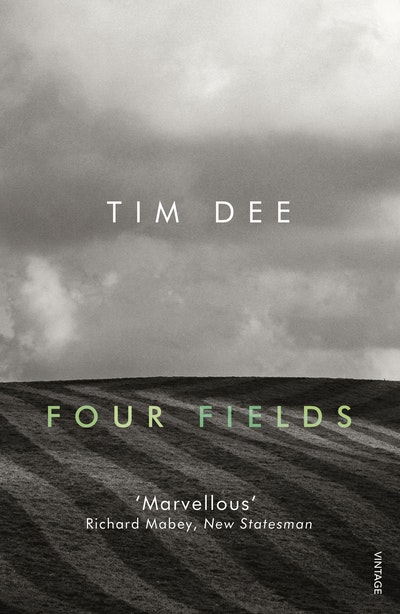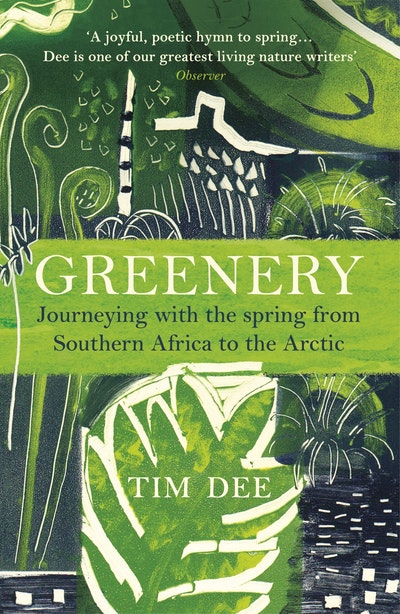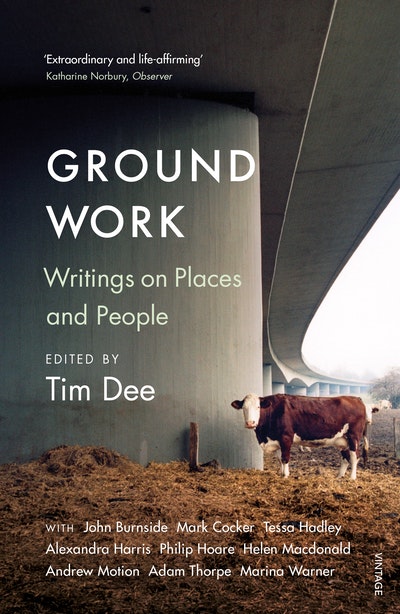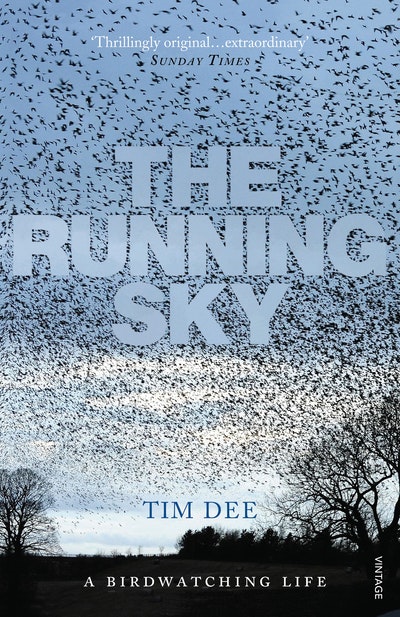- Published: 15 September 2014
- ISBN: 9780099541370
- Imprint: Vintage
- Format: Paperback
- Pages: 288
- RRP: $29.99
Four Fields
- Published: 15 September 2014
- ISBN: 9780099541370
- Imprint: Vintage
- Format: Paperback
- Pages: 288
- RRP: $29.99
Heavy with poetic resonance… [Dee] pushes the boundaries of nature writing, creating a form that is lyrical but deeply alert to ecological crisis.
Miriam Darlington, BBC Wildlife
First-rate evocation of the natural world merges with an elegiac note in these rich stories of the soil.
Independent
[Dee’s] descriptions are constantly inventive; wry and fearless… A project as expansive, and as mesmerizing, as a fenland sky.
Mary Crockett, Scotsman
Dee’s writing is often quietly poetic, with the spirit of Gerard Manley Hopkins hovering overhead.
Jon Day, Daily Telegraph
Four Fields is an enthralling and unexpected book – or four short books – about what we have made of the natural world. The language itself is rich and loamy. There is evidence of much thought here, as well as a naturalist's profound observation. It is proof that really, there is no such thing as "nature writing" – Dee gives us the wide world and everything in it, including ourselves and all our works.
Kathleen Jamie, Guardian
Mesmerising… Four Fields is about far more than pieces of earth; it is a summary of humanity’s aspirations
Economist
While the battle of Little Bighorn may be a familiar story, his account of the slow death of a Namibian farmstead near the desert is not, and is the finest section in the book. Dee's vision is at its most scalpel-like as he examines road-kill swallows or the bloated bodies of wildebeest piled up in rivers where they have failed to make the crossing.
Hugh Thomson, Independent
All this springs from Dee’s intense desire to convey his feelings about grass, the level lands where it grows, and the life, both natural and human, that accompanies it – and he succeeds mightily in doing that.
Derwent May, The Times
Wonderfully written prose... Sure to be well worth the wait.
The Great Outdoors
You want to take your time to luxuriate in the beautiful prose and get lost within the literary references, ambling through it all in your own time, much like Dee does in his four fields. A great read.
Phoebe Smith, Wanderlust
The inventive, constantly surprising spontaneity of Dee’s style, and his dazzling range of lore and learning is so pleasurable… In this beautiful book, Dee makes the grass sing both for natural joy and global warning.
Iain Finlayson, Saga
A hymn to what [Dee] calls ‘the bend and give of life’, to the vistas opened up by a loving, intelligent, curious sensibility and to a belief in the virtues of looking. It is, in that way, an education in how to be.
Adam Nicolson, Country Life
A loving investigation into the pastoral… The language is almost overwhelmingly rich and ripe, full of tumbling wordplay… This is virtuosic beyond the merely visual, its aesthetic power drawn from Dee’s sense of deep time, his ability to interweave the natural, historical and cultural into one dense and lovely tapestry.
Olivia Laing, New Statesman
Tim Dee is a superb writer. This is lyrical, enchanting, thoughtful reading.
Choice
It’s a brilliant idea and the book is as passionate, lyrical and intelligent as Robert Macfarlane’s The Old Ways.
Giles Foden, Conde Nast Traveller
With a lyricism richly and strangely his own, Dee maps a topography that has as much to do with the mind as with Earth.
Nature
Strikingly original… Insightful, poetic and evocative.
Duncan Craig, Lonely Planet Traveller
The book offers experiences and, for anyone whose responsiveness to the world has slackened, a reminder of how full experience can be.
Amy Leach, Observer
Tim Dee has a deep feeling for the natural world and an ability to celebrate it in ways that seem fresh and new.
Tim Richardson, Literary Review
[Dee] writes so well, and so personably, that he casts a disarming spell over his readers.
Mary Blanche Ridge, Tablet
[Dee] is at once a naturalist, environmentalist, journalist, historian and diarist. Dee’s rich writing delights as he imparts his considerable research and observations about life and the state of the world
Good Book Guide
[It] belongs in the tradition of 'nature writing', but works with it too putting its beautifully written sentences in the service of description and evocation, but using them to frame a serious conversation about environmental preservation and its opposites; it’s a deeply attractive book and also an important one.
Andrew Motion, Guardian
Felt very deeply and pondered very wisely, it takes four areas of the planet and tells their story in ways that bring the plight (and delight) of the earth as a whole within reach.
Andrew Motion, Times Literary Supplement
A lyrical, poetic reflection on our relationship with the natural world.
Tim Maguire, Edinburgh Evening News
This profound work by Tim Dee is as creative and original as anything on the Man Booker shortlist and arguably more "useful"... The book’s reach is extraordinary.
Bel Mooney, Daily Mail
[A] marvellous new memoir.
Richard Mabey, New Statesman
An enthralling and unexpected book of what we have made of the natural world
Kathleen Jamie, Guardian
This is nature writing at its finest
Juanita Coulson, Lady
With the eye of a birdwatcher and the soul of a poet, Dee meditates on our green spaces and what we have made of them
Michael Kerr, Telegraph
Dee’s rich writing delights as he imparts his considerable research and observations about life and the state of the world
Good Book Guide
Charged with meaning and lyrically luminous, Four Fields is an unquantifiable work – and an unmissable one
Melissa Harrison, The Times





